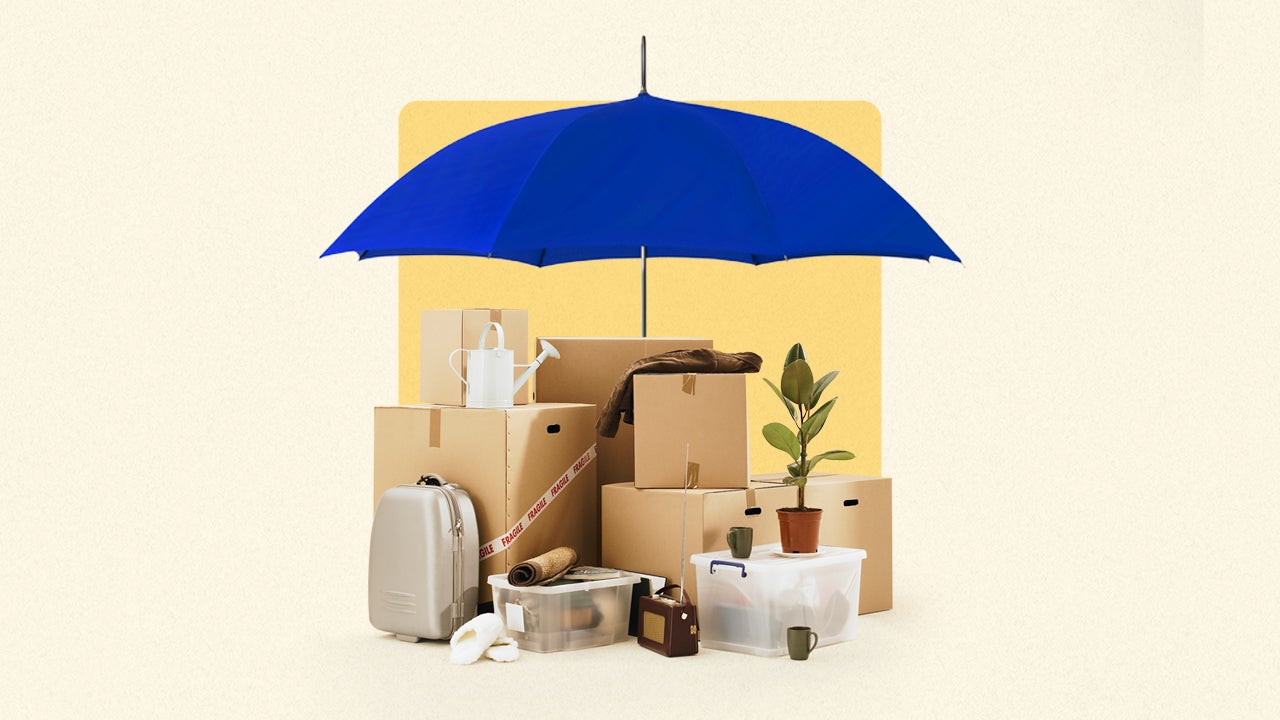Homeowners insurance exclusions




Key takeaways
- Not all damages are covered by a home insurance policy; common exclusions include floods, earthquakes, landslides, pests and mold.
- Homeowners can purchase endorsements or additional policies to cover excluded risks, such as coverage for high-value items or flood insurance.
- Each insurance company may have different exclusions, so it’s important to review your policy with a licensed agent.
One insurance concept that is important for homeowners to understand is exclusions. Insurance exclusions are perils — or events that cause damage — that are not covered by your policy. Most policies include at least a few exclusions, such as damage caused by flooding or earthquakes. You may, however, be able to purchase supplemental coverage for these events. In this guide, Bankrate’s insurance experts review common home insurance exclusions.
What are home insurance exclusions?
If you flip through your home insurance contract, you’ll find the exclusions section — the part of your policy that details which perils and financial losses your insurance company will not cover. You can protect yourself against some policy exclusions by purchasing coverage endorsements. However, there isn’t an endorsement for every single exclusion; some losses, like those due to war, nuclear hazard, government action, wear and tear and intentional losses, cannot be covered by a home insurance policy.
- Exclusion
-
A peril or loss not covered by your home insurance policy
- Peril
-
An unpredictable event that can damage your property
- Endorsement
-
Also called a rider or add-on, an endorsement changes your home insurance policy without replacing or renewing your policy. Endorsements can offer financial protection against excluded perils for an extra cost.
11 Kinds of damage home insurance does not cover
1. Floods
Although floods are the most common natural disaster in the country, flood damage is typically excluded from standard home insurance policies. Standard home insurance policies generally also will not cover floods caused by sewer backup, sump failure or water that seeps into your home’s foundation. However, if a windstorm tears a hole in your roof and rain pours into your house through the damaged roof, the flood damage incurred would likely be covered by your home insurance policy. Additionally, your policy can cover some sudden and accidental water damage depending on the cause of loss. If a pipe suddenly bursts because a tree fell on your home in a storm, the water damage may be covered by your policy.
2. Earthquakes and earth movement
Just like flood damage, damage caused by earth movement is a common homeowners insurance exclusion. The excluded causes of loss typically include earthquakes, landslides, mine subsidence and mudflows. Including earthquakes in a home insurance policy could threaten an insurer’s financial solvency. Earthquake damage can be widespread and catastrophic, and after a bad quake, claims may be too expensive for insurance companies to handle.
3. Maintenance
Home insurance is designed to help with sudden, accidental damage. While keeping up with maintenance is a great way to help prevent that, your home insurance company won’t usually help you pay for it. To finance home maintenance projects, you may want to consider setting aside a portion of money. If you have concerns about being able to afford the cost of keeping up your home, you can also explore purchasing a home warranty.
4. Pests
Almost all homeowners policies exclude infestations of vermin, including insects and rodents. Whether your home is affected by termites, bedbugs or mice, your home insurance coverage is not likely to cover the eradication and remediation costs. However, you may have some coverage if pests trigger a covered loss, like if mice chew through some wiring that sparks an electric fire. The damage from that fire could be covered by your home insurance policy.
5. Mold
In most cases, mold is a home insurance exclusion unless the mold resulted from a covered peril. For example, if a storm breaks your window and the resulting water damage causes mold, you may have coverage for the mold remediation. But for mold that develops slowly or for which you cannot identify a cause, you will likely need to pay for any necessary treatment and repairs out of pocket. Some companies may offer an endorsement for mold remediation, so you may want to speak with your insurance agent to see if this is an option for you.
6. War
Losses due to war are not included in a home insurance policy. Like earthquake damage, wartime losses can be catastrophic for an insurer. This pertains to declared war, undeclared war, civil war and nuclear war.
7. Nuclear hazard
Nuclear radiation, reaction or radioactive contamination is not covered by a home insurance policy. Nuclear power companies have their own liability insurance, so your home insurance policy wouldn’t be involved in any kind of claim payout for homes in the hazard zone. That said, if the nuclear event causes a fire, you may have some coverage for the resulting damage.
8. Government action
If the government or a public authority damages your personal property or your home’s physical structure, you won’t be able to file a home insurance claim for the loss.
9. Intentional loss
If you intentionally damage your home in order to file an insurance claim, it not only won’t be covered but you could be prosecuted for insurance fraud. The same principle applies to the liability portion of your policy: if you host a party and intentionally punch a guest in the face, your liability insurance won’t help you if you’re sued by your injured guest.
10. Neglect
A home insurance company will likely deny your claim if the damage in question stems from neglect. If your sink has been leaking for a while and that leak damages your kitchen counters, home insurance won’t help you out. This also applies to regular wear and tear. If the wood on your back deck needs replacing simply because of age, you won’t be able to file a home insurance claim for it.
11. Wind damage in high-risk storm states
Wind damage may be excluded from home insurance in some areas. In hurricane-prone states like Alabama, Florida, Louisiana, Mississippi, North Carolina, South Carolina and Texas, wind may not be a covered policy peril, or if it is covered, there may be a separate wind deductible, depending on how the policy is written. In Texas, for example, wind is only excluded for homes in designated high-risk counties.
Other common home insurance exclusions
The list above is by no means a complete list of all property insurance exclusions. The following are also usually excluded from most home insurance policies:
- Local building ordinance or law: If you live in an older home and it is damaged in a covered peril, it may cost more to repair it to current codes. Insurance may not pay for the additional costs of such repairs, although you may be able to purchase an endorsement that would add this functionality.
- Home-based businesses: When you work from home, you may want to consider purchasing business owners’ insurance. Standard home insurance policies generally do not cover property used for business purposes or business liability coverage.
- High-value items: Your policy is likely to cover personal belongings up to a certain limit, but high-end belongings, such as jewelry, electronics or artwork, may not be covered to their full value unless you purchase a scheduled personal property endorsement.
- Aggressive dogs: Some insurance companies may not cover damage or injuries caused by dog breeds that are considered aggressive by nature. This may include pit bulls, German shepherds, rottweilers or wolf-dog hybrids.
- Power surges: if your local utility causes a power surge that damages your home electronics or appliances, you may not be covered. This probably won’t be the case, however, if the surge is caused by lightning, which in most cases will be covered.
7 Endorsements to consider adding to your home insurance policy
Some risks may be excluded from your home insurance policy, but that does not mean you can’t get insurance for them. For broader financial protection, you can purchase endorsements to fill in any coverage gaps.
- Flood insurance
- Earthquake insurance
- Scheduled personal property endorsement
- Home business endorsement
- Difference in conditions endorsement
- Sewer backup endorsement
- Service line coverage
Frequently asked questions
Why we ask for feedback Your feedback helps us improve our content and services. It takes less than a minute to complete.
Your responses are anonymous and will only be used for improving our website.
You may also like


What is contents insurance in homeowners coverage?

Guide to home insurance: coverage basics and definitions

Is homeowners insurance tax-deductible?
